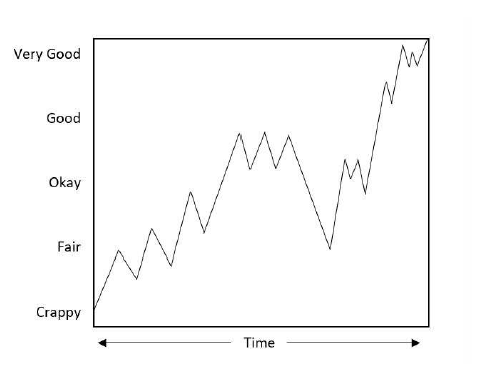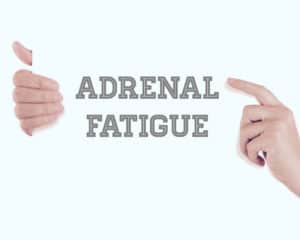“I am following the diet strictly and was feeling better for a week, until yesterday. Today I have symptoms again! I am not better. It isn’t working!”
The road to recovery, with the right treatment plan, should be a slow upward trend. And although moving forward, this process also comes with lots of ups and downs. Healing the gut means a lot of good days and lots of ‘crappy days’.
Why crappy days?
There are so many factors that influence how happy our gut is.
- Do you get enough sleep? Most of us are on our phones or staring at the TV the last couple hours before bed. This throws off our natural circadian rhythm, and when we don’t sleep well our cortisol levels rise.
- Stress: If we have high cortisol, this triggers inflammation and inflammation is bad news for the gut! High cortisol, due to a lack of sleep or even as a result of stressful events or our busy jobs, has been shown to negatively impact the levels of beneficial bacteria in our microbiome. Although we are still in the beginning stages of understanding all these complex and dynamic relationships, research shows how much our lifestyle can positively or negatively impact our gut health.
- Hormones. Women, what time of the month is it? Sex hormones play a major role in our gut functioning.
- Germs. Are you fighting a cold, getting over a cold, or possibly have a touch of food poisoning.
- Did you eat something that didn’t agree with you? I know how hard it is to follow a strict diet, and to expect results for your hard work. But sometimes we indulge in the wrong places without realizing it might be a problem. For instance, we are strictly gluten free, but we had a box of gluten free cookies. Well, that’ll mess up your gut!
These are just a few of many, many factors that affect our gut health and the symptoms we experience.
Sleep and stress are often the first things to ask yourself about when trying to discover why you are symptomatic.
Stress reducing:
- We can’t get rid of stress. But we can manage it.
- Meditation
- Yoga
- Deep breaths periodically through the day –
Set your alarm or practice in between each email or at each stop light. - Laughter
- Sunlight
- fresh air
Sleep:
- Have consistent bedtimes
- Get rid of the screens in the bedroom
- No smart phones or tablets 1-2 hours before bed.
- Don’t eat at night
- Sleep in a dark cool room
Our gut is our second brain and just like we (ourselves, our mood) can’t expect to feel happy all day every day, we can’t expect our gut to be happy all day every day either.
The road to wellness is a slow upward trend.
The goal is to improve over time. Try to step back from the individual days of ups and downs and look at the overall progress. As long as you are on an upward trend; you are making progress. The graph demonstrates what I mean.





